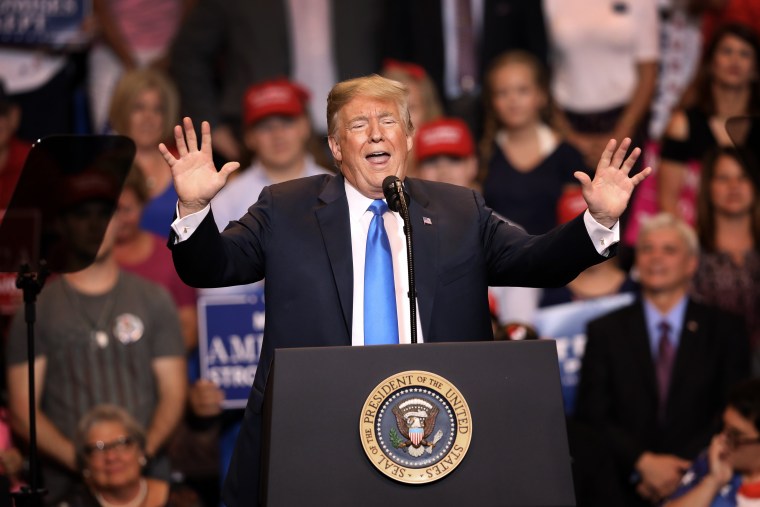For months, Donald Trump repeated one of his favorite phrases -- "No collusion" -- as if it were some kind of nervous tic. Last week, however, the president made the phrase quite a bit longer: "Collusion is not a crime, but that doesn't matter because there was No Collusion."
The Washington Post reported over the weekend that Trump has taken a liking to this framing, in part thanks to Rudy Giuliani's influence.
Trump has told some associates that Giuliani has convinced him Mueller has nothing incriminating about him. "Rudy's told him the other player is bluffing with a pair of 2's," said one Trump adviser. And Trump has latched onto Giuliani's talking point that "collusion is not a crime," believing it is catchy and brilliantly simplistic, according to people with knowledge of internal talks.
With this in mind, on ABC News' "This Week" yesterday, Jay Sekulow, a member of Trump's legal defense team, pushed the line with great vigor. "The question is, what law, statute, rule or regulation's been violated?" Sekulow asked. "Nobody's pointed to one."
It fell to host George Stephanopoulos to respond, "Well, they actually have pointed to several including conspiracy to defraud the United States."
Right. The trouble with the "collusion is not a crime" talking point is that it's plainly wrong.
An NBC News' report recently explained, "There is no statute covering 'colluding' with a foreign power, but it is illegal to conspire to violate laws against not only hacking, but foreign participation in elections."
On the show last week, Ari Melber spoke to Daniel Goldman, a former federal prosecutor, who explained, "If you were to sit on television every night and every time you talk about this investigation, you would have to say, let's talk about the investigation into a conspiracy to defraud the United States from impeding the proper functions of the government, people would turn the channel off. 'Collusion' is just shorthand for potentially several crimes that are in the federal code."
The Washington Post published a related piece the other day from Barry Berke, Norman Eisen, and Dani James, explaining that "collusion" is "actually many crimes."
As seasoned criminal law practitioners, we recognize when the tactic of arguing that facts do not constitute a crime is used. That typically happens only after it becomes clear that the prosecution will be able to prove the conduct at issue occurred. That makes it particularly interesting that the president and his lawyer are now reaching for the "collusion is not a crime" defense, after the reports that Cohen will say Trump knew of the Trump Tower meeting.At any rate, there can be no question of the legitimate law enforcement interest in investigating the many "collusion" crimes that may have been committed. The American people have a fundamental right to know if the president of the United States worked with Russia to win the election and undermine American democracy. The president and his lawyers' embrace of the extraordinary defense that such collusion would be entirely lawful raises an obvious question: Why are they so busy defending collusion if there was none?
Trump may find the phrasing "catchy" and "brilliantly simplistic," but if the president thinks it's accurate, he's received some very bad advice.
